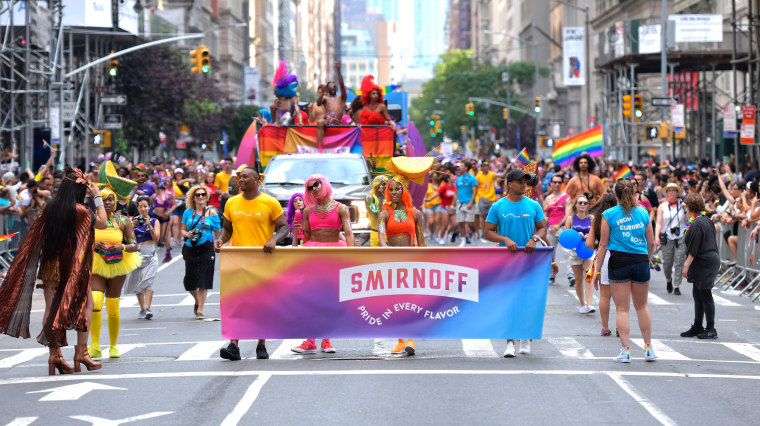It’s June and the LGBTQ communities across the United States and around the world are taking to the streets — a riot of visibility, colorful and noisy, but signifying what?
Pride parades started as a protest and a revolution. It may be hard to remember, but 50 years ago, when the rebellion against police harassment happened at the Stonewall Inn, LGBTQ people were still largely invisible. We were hiding from a larger world that stigmatized, brutalized and rejected us. The Stonewall Uprising demanded American institutions, especially law enforcement, stop this brutality and intolerance.
Those marches changed the world. But now they’ve evolved into corporate parties.
LGBTQ communities across the United States and around the world are taking to the streets — a riot of visibility, colorful and noisy, but signifying what?
The first Christopher Street Liberation Day March in 1970, and subsequent marches for years thereafter, demanded freedom. We were out in the streets to end injustice and violence, against our communities and all other oppressed people. From local marches, we went on to national marches on Washington.
Did those marches end discrimination? Did politicians say “Oh, I get it. Let me rush right out and change the laws immediately”? No, of course not. But here’s why all of these marches were so crucial. They empowered us. We came out (literally) into the streets. We saw each other. We started to develop self-respect. And then we went home and went to work, inspired by our experience of those marches. We created organizations — legal ones to fight bad laws, social services to care for ourselves, educational ones to gather and spread our histories, and on and on. And we became dedicated activists for justice.
A lot has changed since 1970. But significantly, from an economic standpoint, businesses have realized that LGBTQ people are a market. So corporations have moved in. Their enormous floats now lead the marches, which are now just parades. The corporations bring hundreds of people, wearing their logo T-shirts and carrying logo banners and signs, to fill up the streets with cheap rainbow advertising.
Don’t get me wrong. I appreciate the help corporations give us now in fighting for our rights. Businesses have banded together to defeat awful anti-LGBTQ laws proposed in Texas and Tennessee and North Carolina. But that doesn’t mean we should turn over the Pride parades to them. In New York City, the parade now excludes individuals who want to join in spontaneously, a hallmark of the first marches which openly encouraged onlookers to join the throng. Today, you can no longer step off the sidewalk and into the street. Police barricades keep the parade free of anyone not appropriately badged and permitted.
I appreciate the help corporations give us now in fighting for our rights. But that doesn’t mean we should turn over the Pride parades to them.
This is why many of us have come together in New York City to form the Reclaim Pride Coalition and stage the Queer Liberation March on June 30th. We’re taking back the streets and highlighting the most marginalized in our communities today — black trans women who are being murdered at an alarming rate, LGBTQ+ people with disabilities, so often stigmatized and excluded, youth and elders. We’ll all be out there on the original route, marching from the Stonewall Inn, up Sixth Ave. and ending on the Great Lawn of Central Park where we’ll hold a powerful rally with speakers and performers. No corporate floats, no squadron of uniformed police.
We need to remember why we’re fighting, because our fights are far from over. Trump has said he supports us, but his actions betray his true agenda — canceling non-discrimination protections, appointing anti-LGBTQ judges, elevating the bigoted religious right-wing. Governments around the world, like Iran and Saudi Arabia, threaten us with the death penalty. We are arrested, beaten up, killed and discriminated against in hundreds of ways from New York City to Alabama to Brazil and Chechnya.
We need to keep empowering ourselves. We need to educate and activate new generations. We need to be back in the streets, celebrating our victories, mourning our losses, committing to the ongoing battles, marching for our lives.
